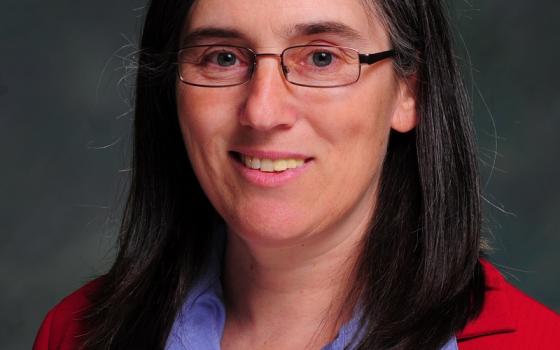Originally from Seville, Spain, Comboni Missionary Sr. Inmaculada Cuesta has ambitious plans for the diocese she ministers to in Richmond, Virginia, helping launch programs that include outreach training and digital pastoral courses.
But as the coordinator for the Association of Hispanic Women Religious, she is looking ahead to problems the community can address at the fifth Encuentros, a reunion for Latina sisters in the United States who have immigrated at the request of U.S. bishops. The conference, which does not have a set date, intends to foster reflections on the sisters' identities in the United States as well as discuss their evolving roles and missionary needs.
Cuesta spoke with GSR about the needs of her diocese and how the Association of Hispanic Women Religious plans to aid its immigrant sisters.
GSR: What are some of the challenges the Hispanic community faces within the Richmond diocese?
Cuesta: The number of Hispanic parishioners living in the diocese continues to grow. Integrating minority populations into the greater parish community rather than having two separate communities within the parish is desired, but not often accomplished.
One of the biggest challenges is to provide leadership formation in the Hispanic communities. We need to better integrate [the Hispanic communities]. Normally, they come to the U.S. with a more sacramental or liturgical approach, so the idea now is that we open a new outreach ministry for adults. Some parish leaders who are in charge of presenting new initiatives to the community are not very open yet to our initiatives because they're more comfortable working out of the liturgy. People are also placing a higher value on other Sunday activities and not committing regularly to attending Mass or participating in church-sponsored events.
But another challenge is reaching the younger generations, the ones who help their immigrant parents. We'd like them to be more open and interact more in this society. So our main concerns are how to interact more effectively in the U.S. church and how to reach the new generation of Hispanics who don't speak the Spanish language well. Even though their parents invite them and they go to the Spanish Mass, they feel more comfortable expressing themselves in English. And for the sisters, their challenge is to learn English, because we are called to be bridges within the culture.
There are many people called and willing to serve the church in a variety of nonordained roles. Is it reasonable and equitable to expect lay leaders to pay for their own education while those to be ordained are supported by the diocese? Many laypeople need training, and parish congregations need to be aware that while some of the people can volunteer, paid ministers are needed as well.
Tell me about the mission of the Association of Hispanic Women Religious.
With the association, we try to open new windows for our Latina sisters. Many of them are not [integrated] in the religious life of North America, so they feel a little bit lost in that sense. They also don't know how the system of the U.S. church works, so first of all, we try through Encuentros to give them the opportunity to ask, the opportunity to have contact with other Hispanic religious women and share their stories and experiences, to receive information for their ongoing formation. We also invite speakers to help them put their feet on the ground in the U.S. church.
The association, so far, is trying to work a little bit more with the main superior in ways that we can provide more resources for the sisters, especially in enculturation — so that they can interact, navigate, and do their ministry more effectively and feel more secure. And I think that Encuentros is a great opportunity for them to meet each other and learn at the same time.
How have the conversations and concerns at Encuentros evolved over the years?
Normally, they develop a theological talk or lesson based on a different icon of the Bible — that's to help the Latina religious communities do their ongoing formation — and the other part is to understand better the reality of the U.S. church. We invite speakers or professors to do this kind of thing, the more intellectual part. But that's all we can do with our resources because we are not a nonprofit organization yet, so we can't receive grants directly. Even if we are willing to approach and open a new initiative, in reality, it's very difficult for us to follow up. So one of the main challenges, especially for us as an association, is to find resources and to have somebody who can work full-time to serve better the Latina sisters in the U.S. That way, we can have a better point of reference for them.
Another thing that the sisters need, especially with the growing Latina congregation, is more academic formation. We would like to support them in that sense, but we don't have financial resources. We try to bring these realities to different foundations so that they can provide some scholarship for them if they are willing to do academic studies. It's the only thing that we can do.
[Soli Salgado is a staff writer for Global Sisters Report. Her email address is ssalgado@ncronline.org. Follow her on Twitter: @soli_salgado.]

